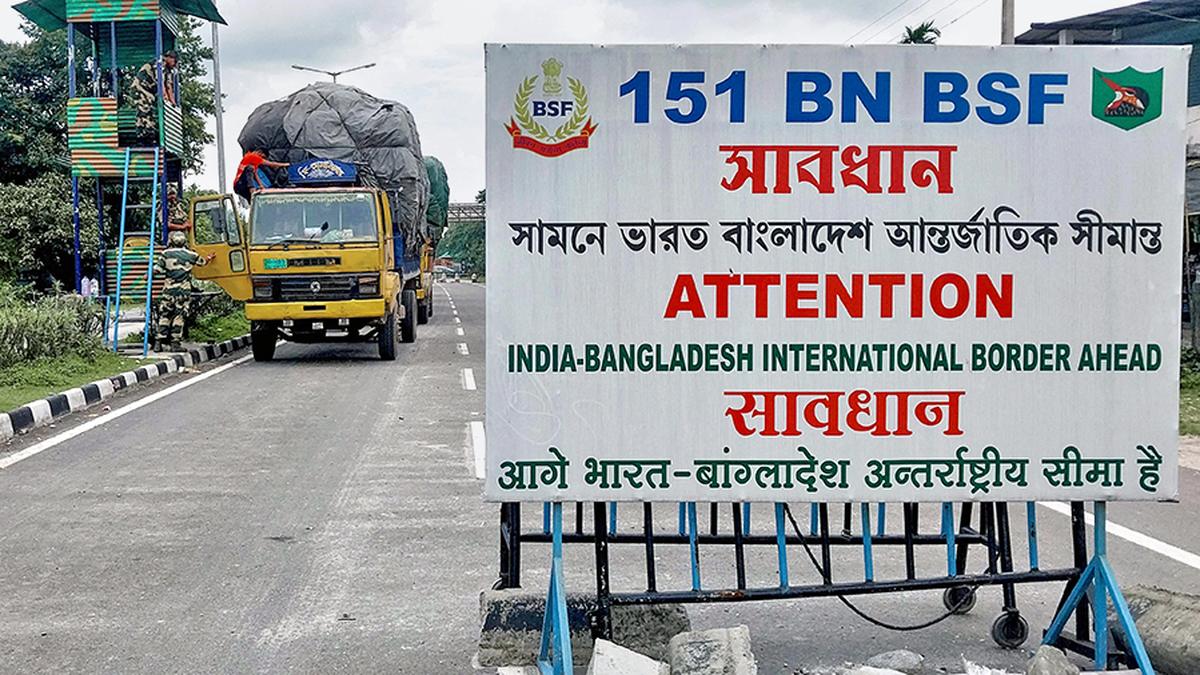India Tightens the Noose on Bangladeshi Jute Imports Amidst Trade Tensions

"India Tightens the Noose on Bangladeshi Jute Imports Amidst Trade Tensions"
In a move that has sent ripples through the South Asian trade corridors, India has intensified its restrictions on jute imports from Bangladesh, a decision that reverberates with economic and political undertones. On June 27, 2025, the Directorate General of Foreign Trade issued a notification that jute from Bangladesh would no longer be permitted entry through any land ports, save for the Nhava Sheva seaport in Maharashtra. This decree follows closely on the heels of a similar restriction imposed on Bangladeshi apparel exports through land ports, signaling a tightening grip on cross-border trade.
The rationale behind this decisive action, as articulated by Indian officials, stems from a longstanding grievance: the deleterious impact of subsidized and dumped jute products from Bangladesh on India's domestic market. Despite the imposition of anti-dumping duties (ADD) in the past, the influx of jute from Bangladesh has persisted, allegedly buoyed by continued subsidies from the Bangladeshi government. "Jute from Bangladesh enjoys duty-free access to India. However, the Indian jute industry has, for long, suffered due to the adverse impact of dumped and subsidised imports," an official source lamented, underscoring the urgency of the restrictions.
The Indian jute industry, a cornerstone of the economy in states like West Bengal, Bihar, Assam, Odisha, Andhra Pradesh, Tripura, and Meghalaya, employs approximately 400,000 workers. These regions have borne the brunt of what officials describe as "artificially depressed prices" resulting from the influx of cheaper Bangladeshi jute, which has not only undermined local farmer incomes but also led to underutilization of capacity in Indian mills.
The recent order encompasses a broad range of products, including flax tow and waste, single yarn, and woven fabrics of jute and other textile bast fibers. While Bangladesh's exports to Nepal and Bhutan remain unaffected, the re-export of these goods to India through these countries is strictly prohibited, a measure aimed at closing any potential loopholes.
India's decision is not without its critics. The move has been perceived as a protectionist measure, potentially straining bilateral relations. However, Indian officials maintain that the decision is a necessary countermeasure to safeguard the livelihoods of its rural populations. "Bangladesh must not be allowed to persist with unfair trade practices that harm the livelihood of Indian farmers and mill workers," an official asserted, emphasizing the need to protect India's economic interests.
The backdrop to this development is a complex tapestry of economic interdependence and competition. Jute, often referred to as the 'Golden Fiber,' is a critical agricultural product for both nations. Yet, the dynamics of its trade have been fraught with tension. India's latest move may be seen as a strategic recalibration, ensuring that its market access is not exploited to the detriment of its own industries.
As the dust settles, the broader implications of these restrictions remain to be seen. Will Bangladesh adjust its export strategies, or will this lead to a broader reevaluation of trade relations between the two neighbors? For now, the Indian jute industry breathes a cautious sigh of relief, while the corridors of power in Dhaka ponder their next move.
🔮 Fortellr Predicts
Confidence: 85%
In the coming weeks, India's restrictions on Bangladeshi jute imports will trigger a series of political and economic reactions across both countries. Bangladesh's government is likely to engage in diplomatic discussions with India, seeking either to negotiate the terms of the import regulations or to implement reciprocal measures, similar to previous restrictions on Indian imports. This diplomatic friction may prompt Bangladesh to seek alternative export markets or partnerships to mitigate the impact of the restrictions, potentially engaging other countries in South Asia or beyond. Domestically, Bangladesh's exporters will likely experience increased costs due to rerouted logistics. Indian jute manufacturers are expected to capitalize on reduced competition, leading to a probable increase in domestic jute production and sales. This may temporarily stabilize India's jute industry, but the overall economic relationship between the two nations could experience heightened tensions. The affected import route will create bottleneck challenges at the Nhava Sheva seaport as Indian authorities accommodate new trade flows, potentially causing delays and operational issues. Over the next quarter, any sustained economic benefits to the Indian market could be offset by inflated tensions leading to broader trade disputes beyond jute, perhaps affecting other industries where both nations interact prominently.